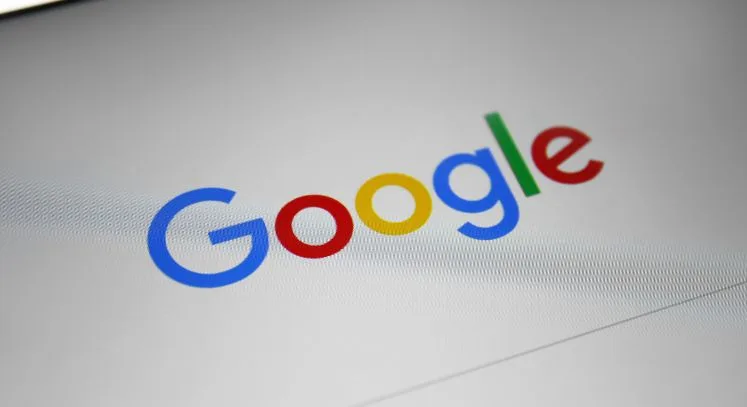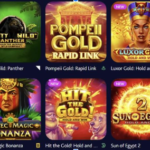Google’s 25e Verjaardag is not just a celebration, it is a journey through the digital revolution that Google has spearheaded. Google is a technology company that transformed the living way, work, and access information. It’s behind a widespread search engine and numerous innovative products and services. The company’s first server was built using Lego bricks and the now iconic name “Google”.
So to celebrate Google’s 25 years of innovation and impact, let’s examine some significant milestones and developments.
The Game-Changing Search Engine
These points will present Google’s search engine game-changing experience.
- Google focused on developing an algorithm that ranked websites based on their relevance and importance, unlike early search engines that just matched keywords. This became PageRank.
- PageRank analyzed backlinks pointing to a site to quantify its relevance, under the logic that more sites linking to a page indicate it has worthwhile info.
- This emphasis on the relevance of results enables Google to become more useful than any previous search engine.
- After Google’s launching, its interface, speed, and high relevance of search results surpassed competitors.
- After growing internet usage, Google’s uncannily accurate and complete search results cemented its rage with users.
- Google’s organizing worldwide data keeps it at the forefront of search, with 63,000 queries handled.
Google revolutionized web search through its novel PageRank algorithm that prioritized the relevance of results over just keywords. This made Google searches amazingly useful for finding any information you needed on the rapidly expanding internet.
Making Information Universally Accessible
By developing a superior search engine optimized for relevance, Google made it possible for anyone to easily find information on virtually any topic in seconds. This democratized access to information.
Transforming Communication and Collaboration
Over the years, Google has delivered tools to revolutionize communication and collaboration. Gmail – with its vast free storage – became the world’s most popular email service. Google Docs, Sheets, Slides, and Drive changed expectations for document creation and file sharing.
Meanwhile, video calling and messaging saw a seismic shift thanks to Google services like Google Meet, Duo, and Chat. Adoption of these tools skyrocketed during the pandemic as they kept people connected remotely. Add in conferencing capabilities via Google Calendar shared spaces and collaboration is streamlined.
Sparking Innovation Across the Tech Industry
Google proved that superior technology and algorithms could create a massively successful company and overturned assumptions about search being a solved problem. This inspired new startups. Its rapid growth kickstarted a surge of venture capital investments into other ambitious startups hoping to emulate Google’s success. Funding flowed more freely.
As Google grew, talented engineers and leaders departed to found their own companies, bringing innovative thinking with them. Some examples are the founders of Instagram, Medium, Stripe, and Nest. Pioneered ideas like cloud computing with Google Cloud Platform years before it went mainstream. Other companies later adopted similar technologies. Google’s technical infrastructure supporting robust search at scale established new benchmarks for processing power, efficiency, and complexity that all tech companies continue chasing.
Redefining Advertising
While users interface with its search engine and tools, Google’s lifeblood is its advertising business which skyrocketed sites like YouTube to success. Through purchasing display ads via Google Ads and AdSense, marketers can now quantify ROI and connect with customers unlike ever before.
At the same time, advancements like Google’s tools for attribution, analytics, and automation have redefined modern advertising. Revenue from ads enables Google to offer most of its services like Gmail for free, underscoring its benefits to the public.
A Comfortable Home for Android
Beyond its offerings, Google has made an indelible impact on the technology landscape through acquisitions like the $50 million purchase of small startup Android Inc. in 2005 – considered one of the tech industry’s greatest bargains. Under Google’s oversight, Android developed into the leading mobile operating system running over 75% of smartphones globally.
Android and the dominant Google Play app store have propelled mobile innovation for over a decade, providing a platform for developers to build world-changing apps accessed by billions daily. From finance to entertainment to communication and more, mobile experiences today are defined by this Google-powered OS.
Mapping the World
Of course, no recounting of Google’s hits is complete without Google Maps – a service so ubiquitous it’s easy to take for granted. After acquiring startup Where2 Technologies in 2004, Google released Maps in 2005 to bring the company’s search capabilities to mapping geospatial data.
Fast forward to today and Google Maps boasts over 1 billion monthly active users. With features like turn-by-turn navigation, transit schedules, live traffic updates, real-world street views, and more, Maps has reinvented what a map can be – an online reflection of the real world available anywhere. The app has rescued the directionally challenged and fueled exploration for 18 years.
Betting on Moonshots
While its core search, advertising, and Android products propel profits, Google is always preparing for the future. To guide innovation, CEO Sundar Pichai upholds founder Larry Page’s vision to pursue “moonshot” projects – ideas reaching beyond what’s currently possible.
Experimental lab Google X formed to nurture audacious moonshot bets. These moonshots include self-driving cars, delivery drones, smart contact lenses, high-altitude internet balloons, etc. While not every idea scales, moonshots represent the forward-thinking innovation that powers Google.
Giving Back Through Philanthropy
Rising alongside Google’s growth is its laudable record for philanthropy directed through Google.org – supporting humanitarian efforts tackling climate change, empowering girls and women, advancing racial justice, and opening access to opportunity. To date, Google’s philanthropy arm has awarded over $350 million to nonprofits.
Complemented by employee giving and voluntarism encouraged under Google’s rule to devote 20% of work hours to passion projects, Google plows its profits back into societal good – living up to its famous and first corporate motto, “Don’t be evil.”
The Future is Bright
From a fledgling startup to the most visited website globally, Google’s expansive impact across technology and culture over 25 years has reshaped society. While founders Larry Page and Sergey Brin began Google with the mission to organize the world’s information, their bigger vision to make information freely accessible and useful has democratized knowledge, dismantled barriers, fueled innovation, and made the world feel a little bit smaller.
And Google is just getting started. As the company celebrates its 25th birthday, it continues pursuing moonshots from biotech longevity research to quantum computing and more. If the last quarter century is any indication, Google’s next 25 years promise to bring advancements we can scarcely yet imagine – touching lives everywhere through the power of information and technology.
Conclusion
In conclusion, Google’s 25-year journey has delivered search, tools, and technologies that feel indispensable already – and we’re likely still only glimpsing the potential of what’s to come. As Google moves from a scrappy startup into a tech titan, its persistent ability to innovate remains driven by founders Larry Page and Sergey Brin’s breathtaking vision. While the coming decades invite complex challenges from privacy to misinformation and more, Google’s fundamental commitment to innovation with purpose points the way forward – fulfilling its mission to make the world’s information open and accessible for the benefit of all.






